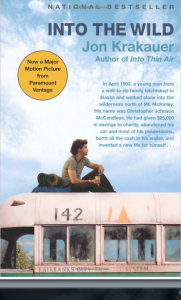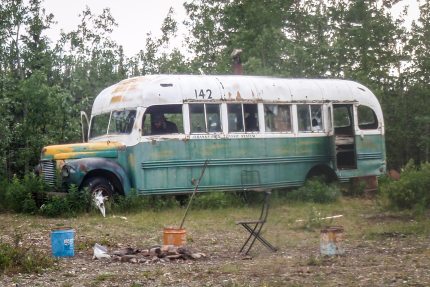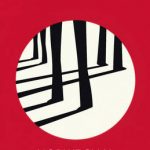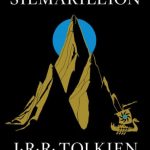
In May 1990, 22yr old Christopher McCandless donated $25,000 in savings to charity and set off from his well-to-do family to create a new life for himself. Traveling across America under his new name, Alexander Supertramp, Chris met many people who he left lasting impressions on and who would later describe him as an intelligent, passionate young man who loved to read. McCandless originally started his epic journey in his car but after surviving a flash flood he abandoned the vehicle and traveled mostly on foot or via hitchhiking. In 1991 he paddled a canoe down remote stretches of the Colorado River to the Gulf of California, from here he snuck across the Mexican border and was towed by duck hunters to the sea where he stayed a while. He took pride in surviving with only essential gear, little money and little preparation.
The Tragic Story of Christopher McCandless’ Alaskan Odyssey and His Life in the Wild
McCandless’ ultimate dream was his “Alaskan Odyssey” where he would live off the land far from civilization so he could explore nature and find himself. In April 1992 he hitchhiked his way to Alaska and disappeared into the wild. After hiking miles into the wilderness, Chris came upon an abandoned bus, which he made his home as he lived off the land with only ten pounds of rice, a Remington semi-automatic rifle with 400 rounds of .22LR hollowpoint ammunition, a few books including one about local plant life, and some camping equipment. McCandless lived there for 113 days before he tragically died and his body was found in the bus two weeks later by local hunters.
Shortly after his body was found, writer and mountaineer, Jon Krakauer wrote an article about Chris that was published in that month’s issue of Outside magazine. Inspired by Chris’ story, Krakauer went on to investigate further and wrote this book, Into the Wild. Being an experienced outdoors man and knowledgeable in survival, Krakauer examines Chris’ epic journey from beginning to end and offers his own insight into the young man that abandoned modern life, his promising future, and his family and went off on his own. Years later in 2007, Sean Penn adapted the book into a film also called Into the Wild.
Revisiting Into the Wild: A Fresh Perspective on Chris McCandless’s Journey
Like most people (especially people not living in America) I first heard of Chris McCandless when I first saw the film. I will be honest when I admit that I didn’t get more than 20 minutes in before I switched it off. It wasn’t that anything in particular was wrong with it but I’d had a bad day and I didn’t feel like watching a film about what I assumed was a whiny rich kid who only had first world problems. After telling my friends this they instantly told me I was an idiot and that I should give it another go.
So a while later (in a much better mood) I gave it another try and watched the film through to the end. Good lord did I feel like an idiot for originally dismissing it. The film is not just a well shot, well acted and well written adaption of Krakauer’s book but also a great film in itself and completely worthy of the praise it received. I would recommend it to anyone. Greatly inspired by the film and by Chris McCandless himself, I went online to find out more. Here I learned of Krakauer’s book and decided to give it a go. As great as the film was I was pretty sure that some bits were exaggerated, left out, or didn’t actually happen, I mean that’s fine it’s a film. Surely Chris didn’t really meet all those interesting people and have all those amazing experiences with them? I doubted that the real life Chris McCandless really met an old man, who’d lost his family, and inspired him to start living life to the full again. Surely he didn’t really turn his back on an invitation to join the prestigious
Separating Fact from Fiction: The Real Events of Jon Krakauer’s “Into the Wild”
Phi Beta Kappa Society? Did he really evade border patrol and canoe under the floodgates of the Morelos Dam and into Mexico? I mean this was all added to make the film more interesting to a wider audience, right? Well no. The further I got into the book the more I realised that the film stays very true to the real events that occurred. Enough of the film though, we deal with books here.
Born in California, Chris McCandless was the son of Walter “Walt” McCandless and Wilhelmina “Billie” Johnson. His father worked for NASA whilst his mother was a secretary though the two later founded their own business and, after much hard work, became quite successful in it. Chris and his younger sister Carine seemed to have a fairly typical upbringing but it soon became clear that Chris was far from ordinary. He was very intelligent and scored excellent grades with ease. It was also noted that he was unusually strong willed and had intense ideals and philosophies on the world along with a strong moral code. Chris’ world was shattered when he discovered that his father had six children from a previous marriage and that he was not divorced from that marriage when Chris and his sister were born. Although he never confronted his father, Chris became bitter towards him and it’s not hard to imagine this only fueled his ideas on society and his strong moral compass.
The Literary Influences and Educational Background of Chris McCandless
Chris was also an avid reader (good man) and was heavily influenced by Jack London, Leo Tolstoy, W. H. Davies and Henry David Thoreau. No doubt these figures only cemented Chris’ distaste towards the modern world and materialism. Chris graduated from Emory on May 12, 1990, with a Bachelor’s degree, double majoring in history and anthropology. It seems he only bothered graduating for his parents sakes and shortly after this he began his journey as Alexander Supertramp.
Critics of Chris McCandless: Reckless or Misunderstood?
As you can probably tell, Chris certainly wasn’t your average Joe. It’s clear he possessed a real intelligence and yet there are many people who to this day criticise McCandless for being so reckless and dying such an avoidable death. Many people argue that if he’d been better prepared, less naive and at least taken a map, he could have left Alaska alive. Whilst I don’t agree with these people it is true that Chris could easily have survived his odyssey if he’d only been more prepared. For instance it seems that shortly before his death, Chris did attempt to leave the wilderness and return to civilization. His way out blocked however by a river that has become much deeper and faster since the snow had melted. Had Chris taken a map, he would have seen that there was a hand-operated tram that crossed the river only 1⁄4 of a mile away from where he was. Instead Chris was forced to try and wait till the river became shallower but it was whilst waiting he died of starvation.
Whilst it is true that Chris could have taken more caution to prevent his tragedy the book left me with the impression that Chris was a lot more skilled at survival than he is often given credit for and the fact is he did survive for over 100 days with no real instruction, a feat I doubt many of us could replicate.
Of course Krakauer’s book details Chris’ adventure and includes interviews with the people he met and connected with along the way, but in my opinion it’s Krakauer’s attempt to understand Chris as a person that is most fascinating. Understanding what Chris’ thought process was goes a long way into understanding his motivation and actions as he lived in Alaska. It seems to me that modern life was making Chris increasingly unhappy and that the only perfection he could find was in nature. Before reading Krakauer’s book I thought perhaps that Chris had decided he would either find happiness or die trying and that dying in the pursuit was a fair deal to Chris’ mind. Upon reading the book however, I’m not sure this is the case.
It seems that whatever Chris was looking for in the wild, he found. On July 2nd, Chris finished reading Tolstoy’s Family Happiness and had marked several passages that moved him. Chris wrote: “He was right in saying that the only certain happiness in life is to live for others…” above an exert from Family Happiness that reads thusly: “I have lived through much, and now I think I have found what is needed for happiness. A quiet secluded life in the country, with the possibility of being useful to people to whom it is easy to do good, and who are not accustomed to have it done to them; then work which one hopes may be of some use; then rest, nature, books, music, love for one’s neighbor—such is my idea of happiness. And then, on top of all that, you for a mate, and children perhaps—what can more the heart of man desire?”
The next day Chris packed up his things and embarked on the twenty mile hike that lead back to civilization. Unfortunately the river he’d crossed, which in April had been easy to cross was now deep and fast flowing. Chris knew that an attempt to cross it would only end in death and so he headed back to the bus in order to wait for the river to become passable. Tragically Chris died before he was able to cross the river. As winter drew in, survival became increasingly harder as there were fewer animals to hunt and the edible plants had died. The general opinion as to how Chris died was that he ate some poisonous berries that are almost identical to another type of berry which is safe to eat. Krakauer has his own theory on the plant that killed Chris but really all that matters is it resulted in the young man’s death.
Chris survived the initial poisoning but was left in an incredibly weak state. He put a sign on the bus door, to alert any passerby that would find the bus when he was out looking for food, that read:
“Attention Possible Visitors. S.O.S. I need your help. I am injured, near death, and too weak to hike out. I am all alone, this is no joke. In the name of God, please remain to save me. I am out collecting berries close by and shall return this evening. Thank you, Chris McCandless. August?”
McCandless became weaker and weaker and on August 12, 1992, he wrote what would be his last words. He tore the final page from Louis L’Amour’s memoir, Education of a Wandering Man, which contains an excerpt from a Robinson Jeffers poem titled “Wise Men in Their Bad Hours”:
“Death’s a fierce meadowlark: but to die having made
Something more equal to centuries
Than muscle and bone, is mostly to shed weakness.
The mountains are dead stone, the people
Admire or hate their stature, their insolent quietness,
The mountains are not softened or troubled
And a few dead men’s thoughts have the same temper.”
On the other side of the page Chris wrote:
“I HAVE HAD A HAPPY LIFE AND THANK THE LORD. GOODBYE AND MAY GOD BLESS ALL!”
Krakauer’s book mentions that his last act was to take a photo of himself with the camera he’d brought with him. Though the picture is not shown in the book, Krakauer writes: “But if he pitied himself in those last difficult hours -because he was so young, because he was alone, because his body had betrayed him and his will had let him down-it’s not apparent from the photograph. He is smiling in the picture , and there is no mistaking the look in his eyes. Chris McCandless was at peace, serene as a monk gone to God.”
And So Chris McCandless AKA Alexander Supertramp crawled into the sleeping bag his mother had sewn him and passed away. His body would be found and his parents would finally receive news on the son they had not heard from in over two years. The book ends on an incredibly touching chapter where Krakauer travels with Chris’ family to the bus he lived in. Of course the pain of losing a son and brother will never completely heal but it seems the family understand why Chris had to do what he did.
“Chris McCandless: Living Life on His Own Terms, A Tribute to His Love for Nature”
In my humble opinion I believe that although Chris’ life was a short one, it was by no means wasted. Chris lived on his own terms and is one of the few people to ever really experience nature in its purest form. It’s cruel, full of suffering and death is only ever a second away but this is perhaps all worth it in exchange for the unrivaled beauty and unparallelled perfection that is nature. If you’d asked Chris if he’d rather die in the wild at aged 24 or live to 85 working 9 to 5 in the city I think I know which he’d have chosen. It is a tragedy that he was unable to return to civilization when he’d wanted to but I believe these are risks he’d accepted long before he reached Alaska. In conclusion, Into the Wild is a book I would highly recommend to anyone and especially to those who have a love for the outdoors or were inspired by the film.











